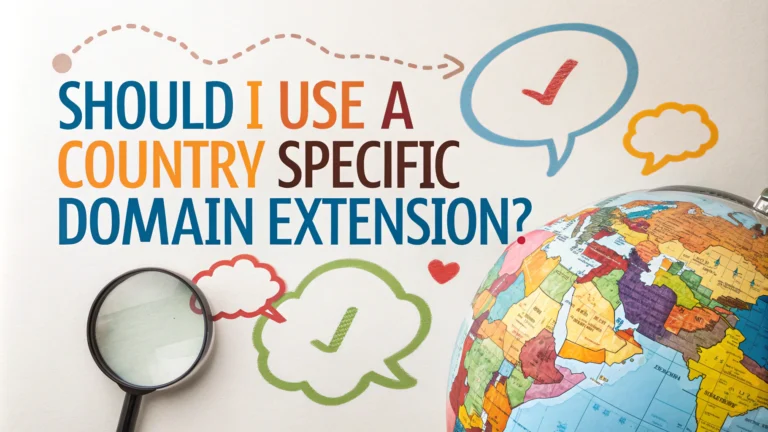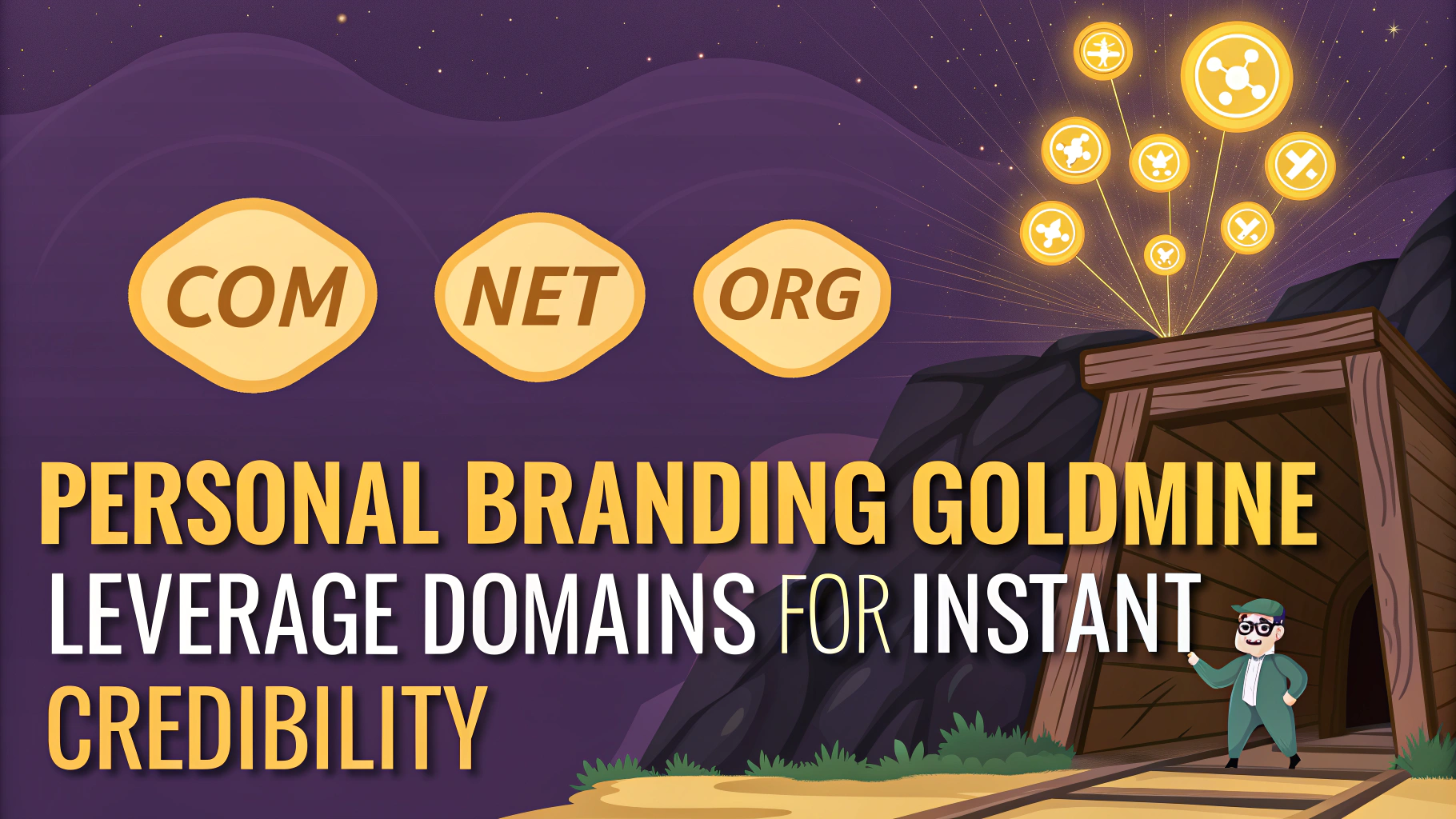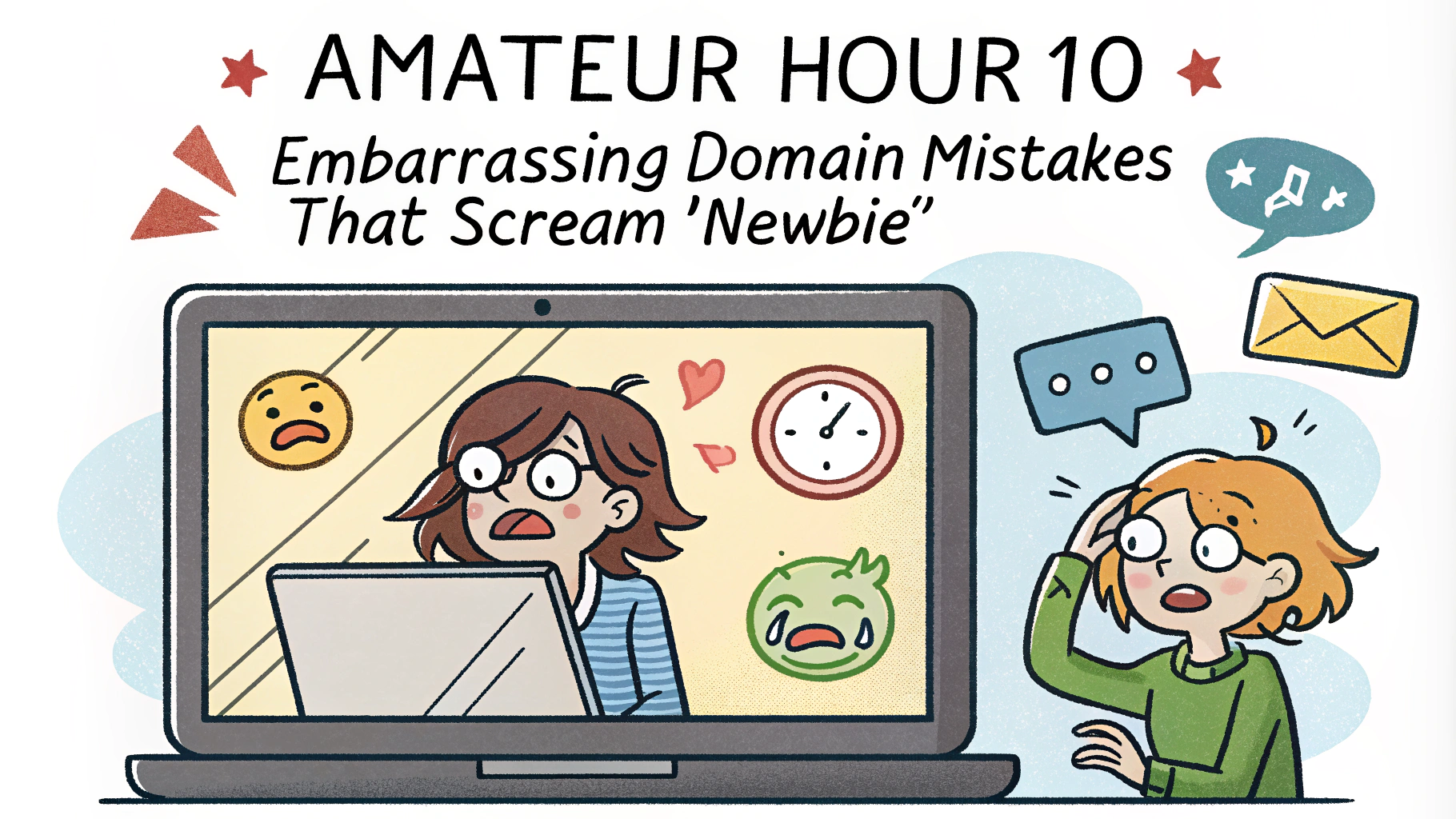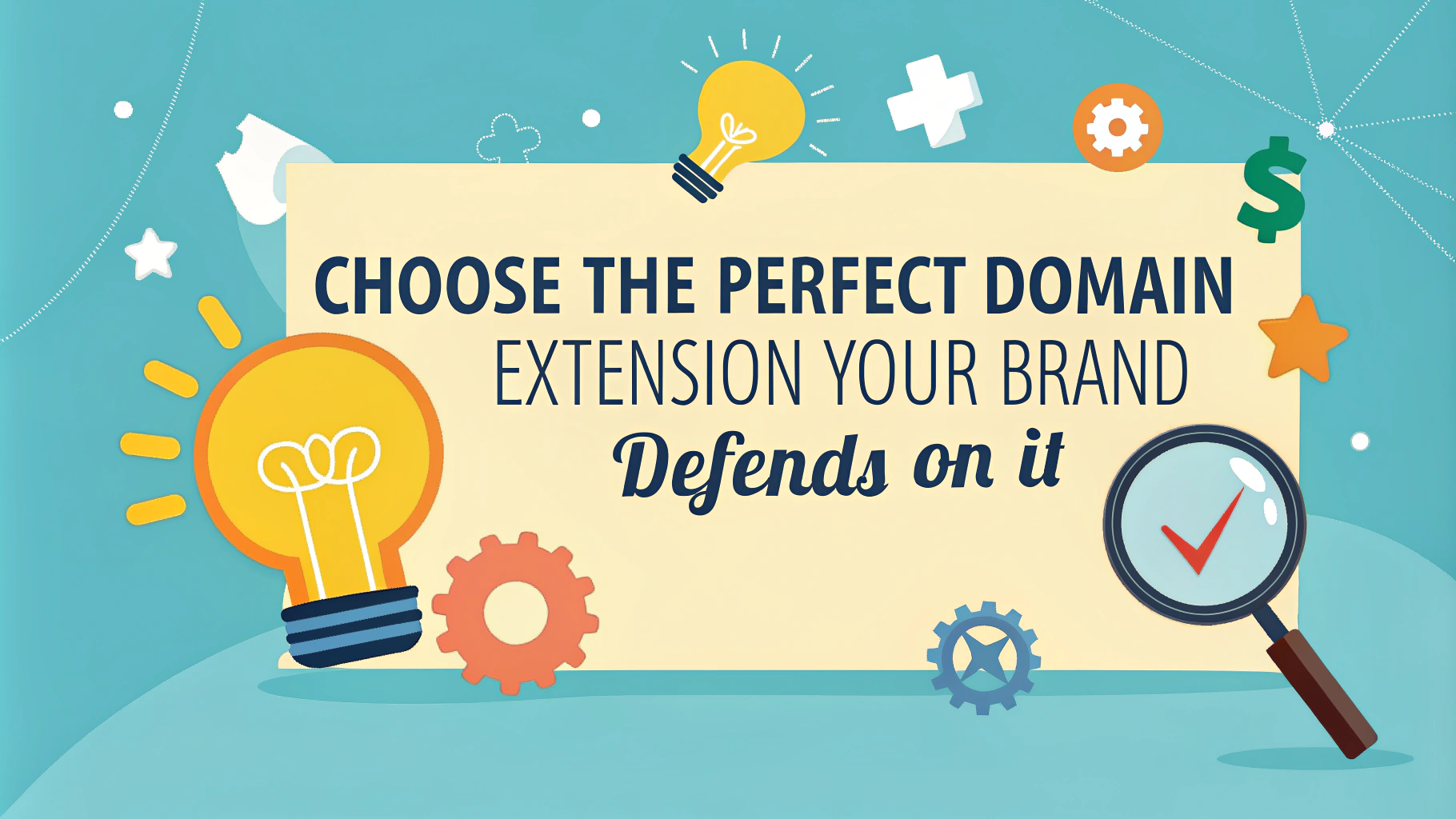Every country has a country code top level domain (ccTLD) that’s supposed to be used for websites targeting users in that country.
If you’ve got a site that’s only applicable to the local market, a country focused domain may be a good choice.
But what if you’ve got a blog that welcomes readers from where you live as well as visitors from all around the world?
Is a ccTLD still the best option?
When should you use a ccTLD
Websites that are primarily designed for people living in a particular country should use the local domain extension.
By doing so, visitors will know the site is intended to serve them. From relevant local content and language, to applicable services such as fulfilment and payment integration with local banks for e-commerce sites.
A lot of the leading sites on the Internet are very US-centric. This is fine when it comes to generic informational content.
But for local news, events, offline services, food delivery, shopping etc – it is often very helpful to know the site is locally focused.
Who uses Country Level Domain Names?
ccTLDs are suitable for any site looking to appeal to web users from a certain country – from locally oriented startups, to global brands looking to establish a country focused site with dedicated local content.
Global Sites that want to Localize
To reach users in markets across the world, large online media businesses and e-commerce giants need to appeal to customers in different countries.
A central website that only customizes certain parts of the site for visitors from each country just can’t compare with custom designed websites that are tailored to suit local norms, tastes, content and expectations.
For example, the travel giant Expedia maintains its global site at expedia.com but has locally focused sites at expedia.co.uk, expedia.fr, expedia.com.sg etc — where the homepage features local content and the language/currency defaults to what’s relevant to each country.
Leading Locally Oriented Companies
A common use of country domains is for the official urls of major local sites for conglomerates, Small and Medium size Enterprises (SMEs) and government related corporations.
These companies go along with the conventional option of using the second level country domain extension that’s intended for local companies.
The domains normally have a .co or .com (to indicate a commercial site) followed by the country code, such as .co.uk (UK) or .com.sg (Singapore).
For corporate websites, the use of commercial country domains is an obvious choice, especially if the audience is local. If the companies conduct business globally or outside of the country, they could use a .com or have a separate site that’s designed for international users.
Should Non-Commercial Sites Use ccTLDs?
The real question though, is whether non-commercial and non-corporate sites should use country level domain extensions.
For instance, should someone from the UK use the .uk domain name for a hobbyist website or their personal blog? Would that be necessary or better than a .net or .me extension?
Or should they go with a .co.uk that is much more widely used and recognized? Note that commercial second level domains in some countries are reserved, and only registered companies can use them. This isn’t the case for the UK’s .co.uk though.
Some would say that unless you’re only doing business locally or have a good reason to go with a ccTLD, it is safer to use a .com or a generic top level domain.
But if your site has a specific local focus in terms of content and audience, then a ccTLD may be more meaningful, even if it’s not a business website.
Benefits of using a ccTLD
Internet users from small, and even medium sized countries often encounter issues where websites aren’t designed to serve their needs.
They’re left wondering if reviews published cover products that are available in their country, whether items sold can be shipped to their country, and so on.
People want tips, recommendations and services that are relevant to them. They need actionable information from sites they trust.
#1 Trust and Relevance
By using a country level domain extension, websites instantly let potential customers know their content is exactly what they’re looking for.
It is an automatic filter to attract your target market and establish an immediate connection with them.
#2 Availability of Domains
One of the biggest advantages of using a country code domain is the availability of domains that are still unregistered.
Website owners can normally get their first choice for a ccTLD domain. In comparison, a .com for most names are usually taken already and registrants need to settle for an inferior second or third choice.
Limitations of using a ccTLD
Just as ccTLDs give websites an advantage to attract local Internet users, they also limit its reach..
#1 Alienate Customers from Other Countries
Although a site may be primarily targeting a specific country, it will probably serve users from many other countries too.
By using a country domain extension, there’s a strong chance of alienating potential customers around the world who mistakenly assume the website only serves local residents.
#2 Difficult to Expand Regionally or Internationally
Plenty of online businesses start off serving one market and eventually expand to broaden its reach.
Websites with a country level domain name may place itself at a disadvantage when trying to make itself relevant to people from other countries.
Buy Both .com & ccTLD Domains
Regardless of which domain extension is chosen, it is a good idea to register both options in case it is needed and to avoid confusion for users who mistakenly go to the wrong domain.
Some people automatically type in .com for domains while others may default to the country extension for local sites.
By owning both domain names, webmasters can forward traffic from the non-active domain to the correct one that’s in use. So even if visitors go to the wrong address, they’ll be diverted to the correct destination.
Is a ccTLD More Expensive than a .com Domain?
Each of them has their own pricing, but on the whole, ccTLDs are either similarly priced as .com domain names for registration, renewals and transfers, or slightly more expensive.
When deciding which domain extension to use for a website, the registration and renewal cost should not be a key factor affecting your decision. The cost difference is negligible compared to the other pros and cons of each domain ending considered.
Is a Country Level Domain Name Safe?
Country code domains are generally just as safe and secure as generic TLDs.
Although the management of disputes regarding trademark infringements and bad faith use is decided by different governing bodies, overall, the rules should be similar.
They are also equally safe from hackers and any bad actors as long as the regular precautions are taken such as the use of SSLs etc.
Can Email Addresses be Created on ccTLDs?
Yes, e-mails can be setup on any domain names including country code domains.
All that needs to be done is to create email hosting on the domain and configure the MX records correctly.
Email addresses can be used on ccTLDs in exactly the same way as .com domains or any other generic TLD.
Are ccTLDs Better or Worse for SEO?
In terms of search engine rankings, websites do not have any particular advantage or disadvantage by using country focused domains.
Some search specialists may suggest ccTLDs have a slight edge for local sites to rank better for traffic from the same country, but there’s plenty of evidence to show that’s not necessarily true.
Google’s algorithm uses a mix of far more reliable indicators to assess the suitability of each site for search keywords originating from various sources, without needing to be influenced by something webmasters can control (and game) such as a website’s domain.
In short, don’t worry about the SEO impact of generic vs country level domain names. It’s insignificant compared to the effects on user perception and branding.
What’s the Best Country Code Domain Name?
The best ccTLD may be considered to be the one with the highest number of registered domains, or the extension that has the most local Top 100 sites using it.
In terms of largest ccTLD, these are the Top 5 country level extensions with the most domain names:
- .cn (China)
- .ca (Canada)
- .fr (France)
- .de (Germany)
- .jp (Japan)
- .co.uk (United Kingdom)
- .nl (The Netherlands)
- .it (Italy)
- .in (India)
- .br (Brazil)
- .es (Spain)
- .au (Australia)
Which ccTLDs are More Popular than .com’s?
There are a number of countries where the local domain name extension is much more popular than .com domains.
These ccTLDs have a large number of very popular sites using them, including major government, banking, media and e-commerce websites. This reinforces their branding and acceptance.
Very often, websites that are published in the local language will use a country level domain, such as French content on .fr domains, German content on .de websites, Japanese content on .jp sites and so on. This makes sense.
However, just as ccTLDs may be very popular in some countries, there are an increasing number of local websites using .com’s and a high percentage of the largest sites using other domain extensions too.
Conclusion
There are two clear situations when it makes sense to use a country code domain name for your site.
A .com should always be the first choice for a website’s domain name. Even if there’s a good reason for you to use another extension, you should still acquire the matching .com and forward the traffic over to your site.











